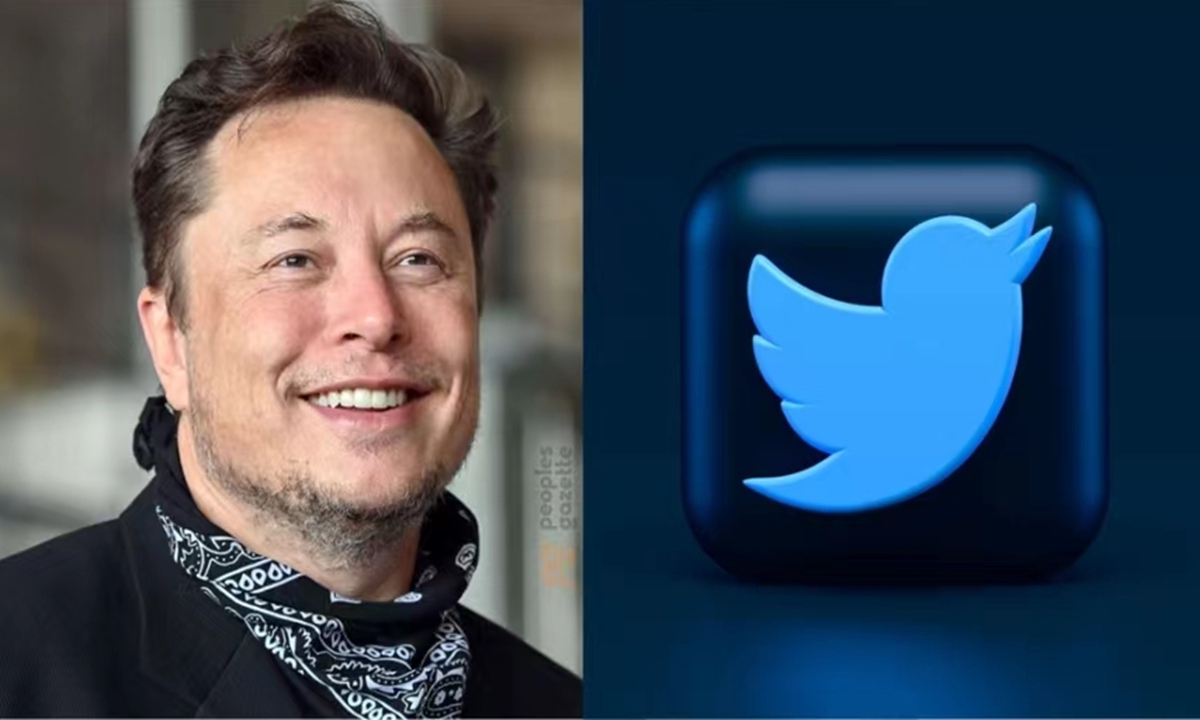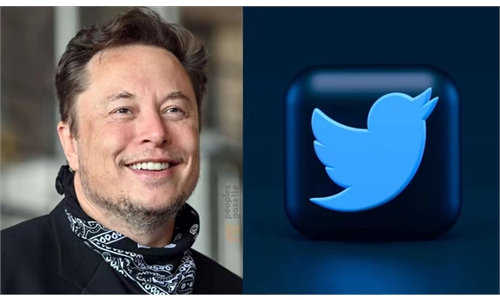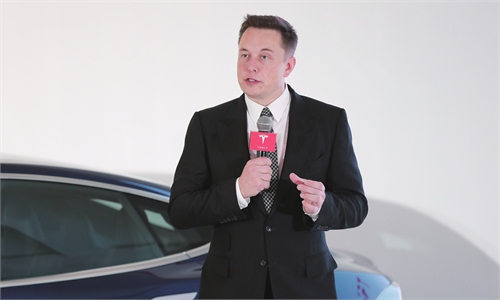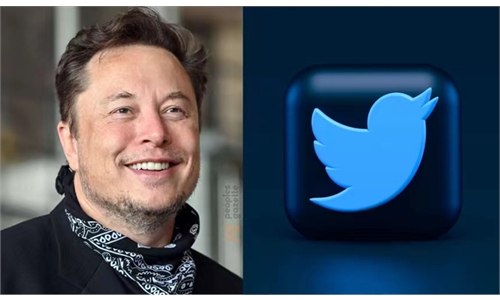
Elon Musk. Photo: website
One day before the US midterm elections, Twitter's new owner, Elon Musk, encouraged independent-minded voters to vote for a Republican Congress. With politically normal, or some would like to say politically correct wordings, Musk seems to have turned the platform into the first of its kind to have taken off the non-partisan mask.On Monday local time, Musk tweeted, "To independent-minded voters: Shared power curbs the worst excesses of both parties, therefore I recommend voting for a Republican Congress, given that the Presidency is Democratic."
Honestly speaking, such a remark is not dramatic in the US, a society of diversity and so-called freedom of speech. If this was tweeted by an ordinary American, it would hardly cause any strong response. But Musk and his appeal triggered a public opinion tsunami, questioning his motives behind the move. His background makes the difference - being the one in charge of Twitter, and being a public celebrity with influence.
The timing gives observers enough reasons to dig. Musk made the call right before the elections, which could have a last-minute influence on median voters.
The majority of American voters have an increasingly consolidated political stance. But the stance of median voters keeps swaying. Their choice could be different between one month ago and now. This is why US laws stimulate that political activities near polling places on election days are prohibited.
But US laws do not restrict people raising voices on social media. Musk thus uses the Twitter platform to express his personal opinions, with a political stance of course. And this is a move that could partly supplant traditional ways of canvassing.
There are some long standing traditional campaign approaches, such as political advertising and holding election rallies. However, with the change in the way of social communications and technological progress, election campaigns are also undergoing transforms. The most prominent change took place in 2008, when former US president Barack Obama secured a victory because he had better utilized social media. It was quite subversive at that time. And it is not a one-time change - since then, in every election, both parties and different candidates have learned from Obama's experience to attach greater importance to the use of social media.
Musk, as the chief of a crucial social media platform, making a political appeal right before election day, will kick start another round of revolutionary approaches of canvassing. He may bring a subversive change to social media platforms. Before he bought Twitter and before Monday, US social media platforms were, on the surface, self-proclaimed to be non-partisan. But Twitter may mark a change of wind - social media is stepping on the old path of traditional media, and will speak out their clear political stance. It is to be observed whether Musk and Twitter will bring a decisive change in US political ecology, but they will certainly impact on the game between the Democratic and Republican Party.
This last-minute soliciting of votes is also a way to test Twitter's influence on median voters, with commercial calculations. If the call proves to be influential enough, Twitter will become a vital stage for competition among different political forces in the future, which could, by that time, bring considerable advertising fees.
Yet given an increasingly divided US political scene, median voters have been sharply shrinking. That being said, instead of saying that Musk is attempting to influence median voters, he may be actually draining the median voter base - by encouraging the voters to go to the republican camp.
Musk said "shared power curbs the worst excesses of both parties." There is nothing wrong with this view. The problem is, be it shared power or checks and balances of power, they are no longer important in the US under the big picture of political polarization. The increasingly opposing public policy propositions of the two parties have brought more and more uncertainties to the direction of US development. It has intensified political infighting. Politicians do not focus on "shared power" any more, but on which political force has the upper hand.
In the US, the real game is not simply between the White House and Capitol Hill, but between politicians and the public, between long-term interests and short-term ones.
Fewer and fewer politicians eye on the needs of the times and long-term interests, but only pay close attention to the interests in elections and in their terms. This is what social media platforms should really call for a change.
The article is compiled by Global Times reporter based on an interview with Yang Xiyu, a senior research fellow at the China Institute of International Studies. opinion@globaltimes.com.cn



